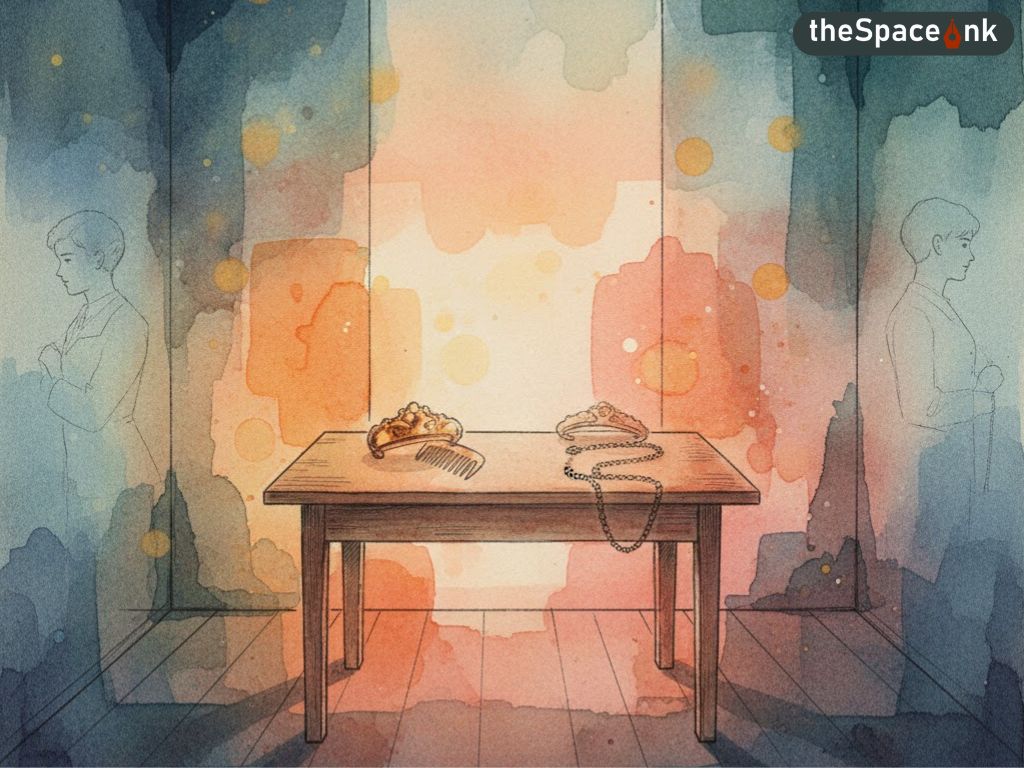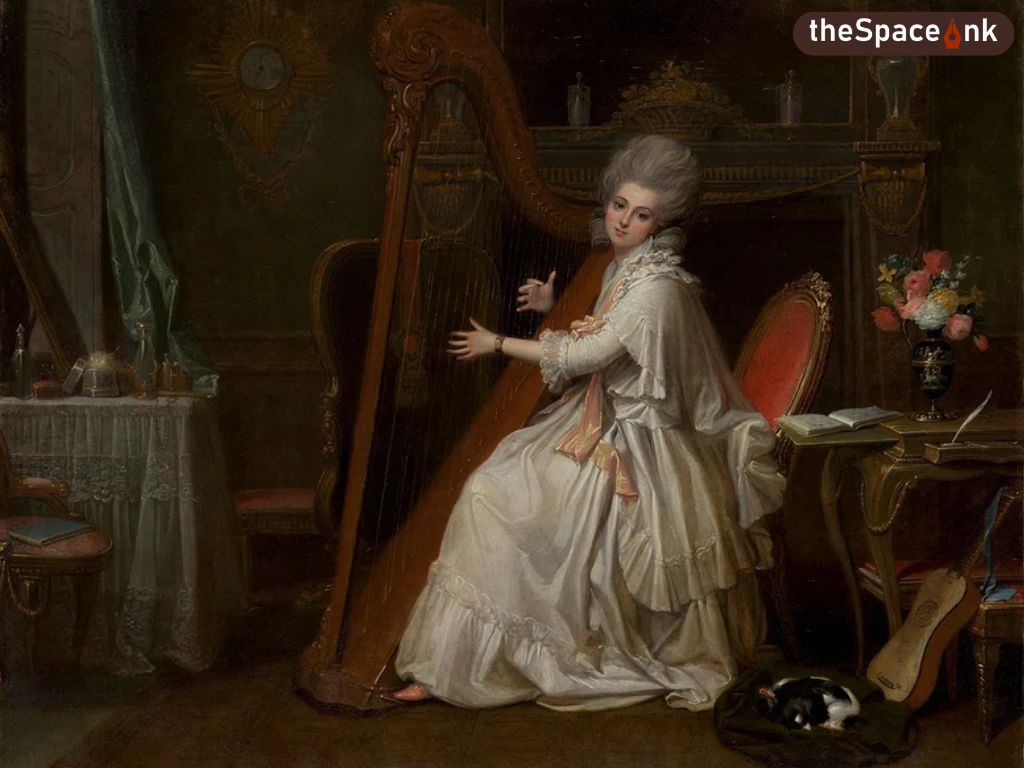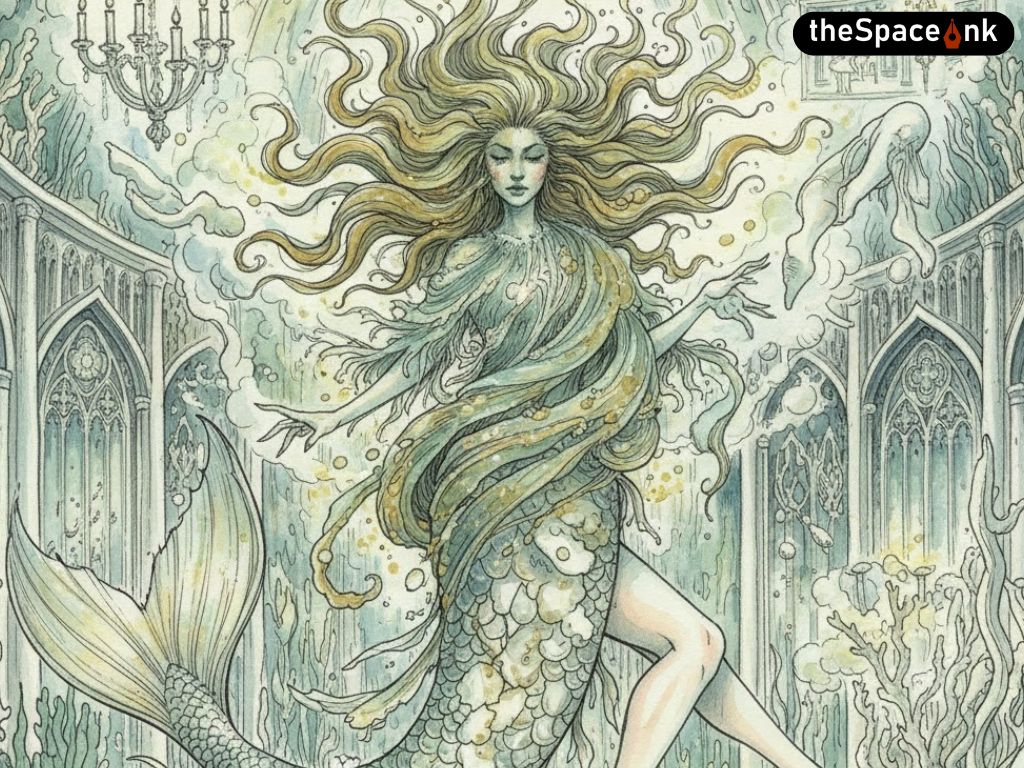Translated from Assamese by Ranjita Biswas.
“All right, take it, Babu! Give me twenty rupees and scoot. How long can I go on waiting with this lone fish?”
Doiboki expertly sewed up the Kurhi, fat with eggs, and gave it to the customer. She swiftly wrapped up the things of her makeshift shop. She craned her neck to peer at the other end where Monu and the other women usually sat, and shouted, “Hei Monu!”
There was no reply. So, they had already left! She was the only one waiting till dusk. But how could she sell these prize fish at such a cheap price? Till a few days ago, the fish vendors used to buy her wares at a reasonable price. But somehow, lately they were behaving as if offering the right price was like slicing off flesh from their own bodies. They pleaded that they too had to pay a lot of money to the middle- men. Doiboki chewed the betel nut vigorously and spat aiming at them- in their absence, of course, accompanied by the choicest of her abuses, “These nincompoops, they wear mekhelas (1) like women, they want to get the fish for free, the bastards!”
She felt rather satisfied with herself after the outburst.
By now, a few small hand-lamps and candles appeared in the bazaar. Roghubir, sitting next to Doiboki, lit two candles on the tips of his carefully arranged hillocks of potato and onions. Looking at the flames, he joined his hands in a gesture of prayer and then spoke to her, “Why Doiboki bai (2), aren’t you going home today?”
Doiboki slapped her thighs and flared up, “Oh, you expect me to look at your handsome face all through the evening, or what?”
Joduram was busy arranging the vegetables and sprinkling water on them. His customers from the town would arrive soon. Ganesh, who usually sat between Roghubir and Joduram with his array of spices, was absent today, so Joduram had more space to arrange the limes in order of colour and size. Doiboki found it quite childish of Joduram who went on arranging and rearranging his ware and she was on the verge of commenting sarcastically on it but changed her mind. Instead she asked, “What’s happened to Ganesh today?”
Joduram was preoccupied arranging the bottle gourds but whispered, “How can he come? A soldier has been killed after the bombing of the bridge, and their village has been on surveillance since then. Everything is closed. The jawans have gone berserk there.” Doiboki had heard about the incident. Now suddenly the hair on her skin stood up in apprehension.
The darkness around the bazaar was thickening. Doiboki felt as if something heavy was sitting on her chest. Had she consented to leave the basket of fish with the vendor, by now she would have had dinner and be in bed. Monu and the others from the village had advised her to do that but she had opted to wait, greedy for a few more rupees. She was handsomely rewarded, of course. Even after buying the provisions, she would have a few rupees left. Just a few more rupees and she could cut open the bamboo pole where she deposited her coins and could take her mother-in-law to the town for the cataract operation. That would be a great relief. Today Doiboki was late, and so by now she must be plodding around, half-blind, arranging to cook dinner. Doiboki’s daughter was now big enough to help her a bit. The old woman relished boiled potatoes mixed with a little mustard oil and salt to go with her rice. Doiboki bought half a kg of potatoes. On other days, she could hardly imagine spending so much on potatoes alone. But today, luck had smiled on her. Then she bought two kilos of rice. There should be three to four kg of rice left at home, and her son must have managed to trap some fish.
Doiboki felt as if something heavy was sitting on her chest. Had she consented to leave the basket of fish with the vendor, by now she would have had dinner and be in bed. Monu and the others from the village had advised her to do that but she had opted to wait, greedy for a few more rupees. She was handsomely rewarded, of course. Even after buying the provisions, she would have a few rupees left. Just a few more rupees and she could cut open the bamboo pole where she deposited her coins and could take her mother-in-law to the town for the cataract operation. That would be a great relief.
With the bundle of rice and potatoes firmly tied up in a bundle, Doiboki stepped out from the bazaar. She took out the money from the knot of her mekhela and put them inside her blouse and started walking fast. The old woman must be getting impatient now, she thought, bothering her daughter every few minutes by asking, “Has your mother come? Where’s that blasted woman gone?” Her children were quite naughty, she knew, and they were after their grandmother all the time, irritating her. As she thought of the near-blind woman, Doiboki felt like a bunch of Kawoi poured out from a fish-basket, jumping up and down on the ground helplessly.
The street lights of the town had come up quite a while ago. The shops were bright with lights. Emerging from the dim lights of hand-lamps in the market, the bright lights of the shops seemed to expose her, making her feel naked. The last buttons of her blouse were missing, she couldn’t afford a petticoat and the mekhela knotted at the waist could not hide her legs. The narrow sador (3) seemed unable to cover her half-open blouse. She felt as if all the men on the road were inspecting her body. Somebody whistled. Was it aimed at her? She put the rice and potatoes in the basket and lifted it to her head. Hiding behind the shadow cast by the basket she walked fast, her eyes downcast.
Soon she left behind the outskirts of the town and stepped onto the earthen path leading to her village lying to the south of the river. The number of people on the road and the lights on the street diminished visibly. Darkness hung thickly over the fields. Only hordes of fireflies jumped around like little Dorikona fish. Somewhere a pack of jackals howled. A young man with his empty rickshaw on the way to the town sang loudly as he passed her. Doiboki looked up to the sky; it was bloated with darkness, like a river in spate in monsoon. The air was extremely humid. She stopped for a moment and took off the blouse. Wet with perspiration, the old blouse gave way and lay in tatters in her hand. She threw the blouse into the basket and lifted the mekhela a bit. The breeze cooled her body. She retrieved the notes from the blouse, made a knot in her mekhela to keep them safely.
Also read: Fiction: Feluda 2.0
Hardly any vehicle passed this way in the evening. A little more distance, and she would reach the village shrine. She had seen the temple from a young age. It had a very big compound. In the front there were two huge ponds. People called them Ganga and Jamuna. Their water never dried up – even in the hot summer or parched winter. Devotees coming from great distances to pray at the shrine filled their bottles with the water before going in. Right in the middle of the compound was a huge peepul tree. Its shadow made the water of Ganga-Jamuna take on a cool green colour. Two ancient turtles with moss growing on their massive crusts resided there. They were named Doiboki and Jashoda. Throw bits of food into the water and call out to them, and they would surely come near the bridge. But Doiboki had only heard about them; she had never seen them. How could she, anyway? The likes of them carried the smell of raw fish; their dark bodies were never allowed to cross the threshold of the shrine. Did her mother name her after the legendary turtle? Doiboki wondered. When she was little, the naughty boys in their gang always teased her, calling, ‘Hei turtle!’
As soon as one crossed the bridge near the sharp bend of the river, their village would come into view. An overwhelming odour of fish carried by the breeze rippling through the fish-nets hung over it. When they were young, Doiboki and her friends would go near the temple at least once a day. Sometimes a kind- hearted soul even gave them some of the leftovers from the offerings at the temple. But frankly, it was not the temptation of the food but curiosity that drew them to the place. What lay beyond, flanked by the ponds, they often wondered as they looked at the people who bowed their heads as they passed by.
To be continued…
Notes:
- Mekhela: the sarong-like piece in traditional two-piece Assamese dress for women.
- Bai: elder sister, shortened form of baidew
- Sador: The unstitched cloth worn wrapped over the mekhela
Arupa Patangia Kalita is one of the foremost contemporary writers of Assam. Her writings reflect many facets of Assamese life. She has received numerous literary awards including the Sahitya Akademi Award in 2014. Her books have been translated into multiple Indian regional languages and also feature as study material in some colleges.








